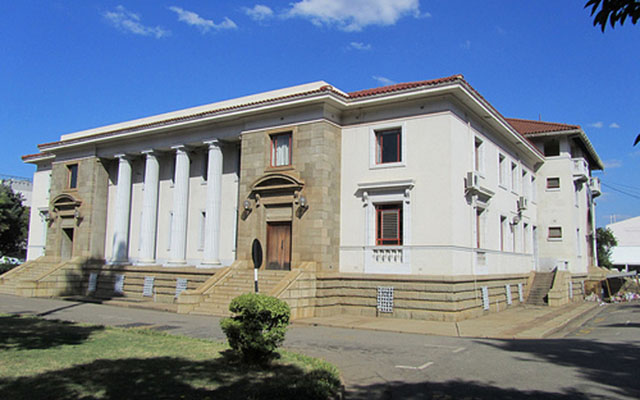Govt directs council to open new ranks

Zvamaida Murwira Senior Reporter
GOVERNMENT has directed local authorities to identify new loading bays for conventional transport operators away from the Central Business District as part of measures to decongest cities and towns and contain touts that of late have been a menace to the travelling public. Local Government, Public Works and National Housing Minister Saviour Kasukuwere said Harare City Council has since identified areas for relocation and would soon close old bus termini like Market Square and Copacabana, among others.
Minister Kasukuwere said this in the National Assembly yesterday while responding to questions from backbenchers during the Question and Answer session. He was responding to a question from Mutasa South MP Cde Irene Zindi (Zanu-PF) who wanted to know what Government was doing to deal with touts, especially given the recent fatal attack of one traveller in the capital.
“The phenomenon (of touts) has caught us not ready for it. We have seen a rise of men working as touts. We still have old bus stops like Market Square, Copacabana. And even buses which are supposed to load at Mbare Musika are loading passengers in the city centre. The City of Harare must identify loading bays and close down old bus terminus in the CBD,” said Minister Kasukuwere.
He said transport operators have since pledged their support for the move. However, Government, he said, will soon unveil a mass bus transport system in Harare, which will start as a pilot project. For the past two years, the Harare City Council has been considering strategies to sanitise local roads. In 2015, council officials mulled introducing high-volume buses for various routes in the capital as part of measures to displace commuter omnibuses.
Initially, Government considered phasing out commuter omnibuses by 2016, but the plans fell through. International consultants were even roped in to discuss the National Transport Master Plan with Town House authorities. Their brief was mainly to determine the plan’s roll-out, which incorporated the transport frameworks of various urban councils.
Commuter omnibuses were first introduced in the 1990s to temporarily complement the services of the Zimbabwe United Passenger Company (Zupco), whose ageing fleet was depleted at the time. The private players were supposed to be phased out once the parastatal regained its footing. However, as Zupco’s viability problems persisted, omnibuses became the de facto mass transport mode.
Separately, Minister Kasukuwere undertook to investigate the relationship between Well-Cash debt collectors and local authorities as residents continue to complain about allegedly strong-arm tactics that are being used by the private company. Legislators are also complaining that Well-Cash is callously disposing properties belonging to desperate indebted residents.
“That is a programme made by councillors to recover debts. We are seized with that issue to understand the nature of their contract. We believe that debt collection is legal in Zimbabwe,” said Minister Kasukuwere.












Comments